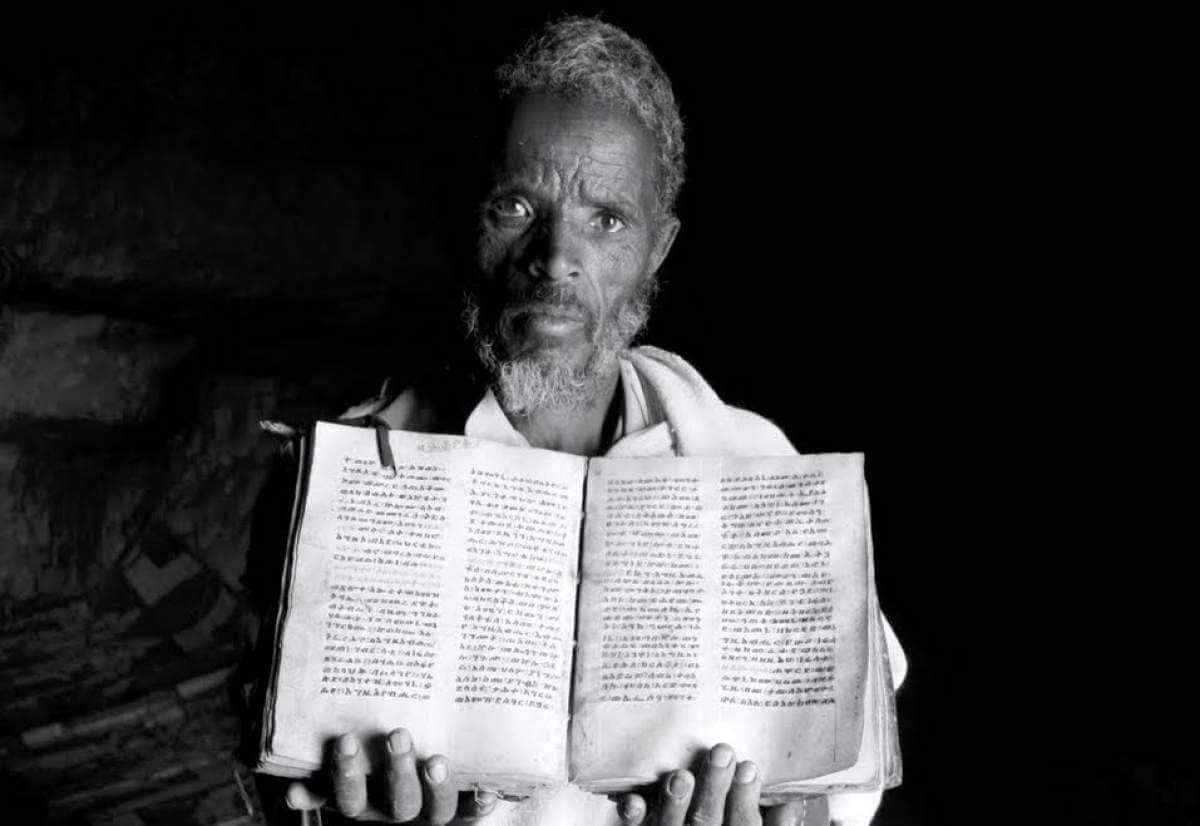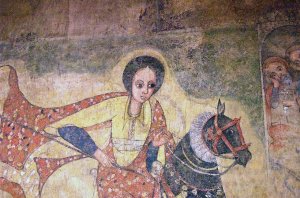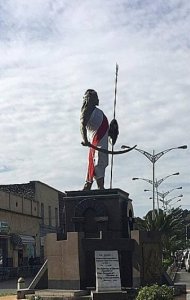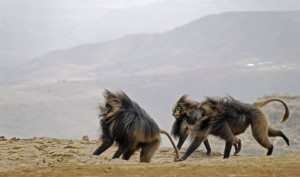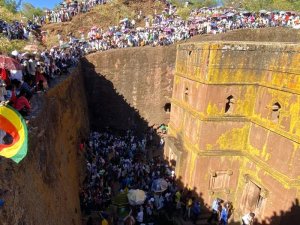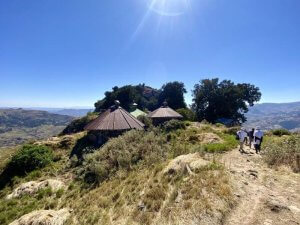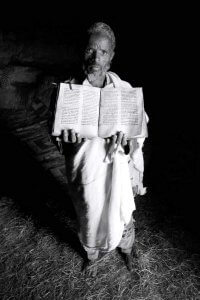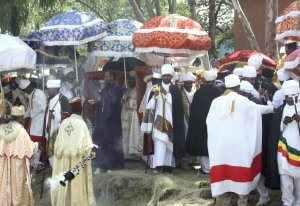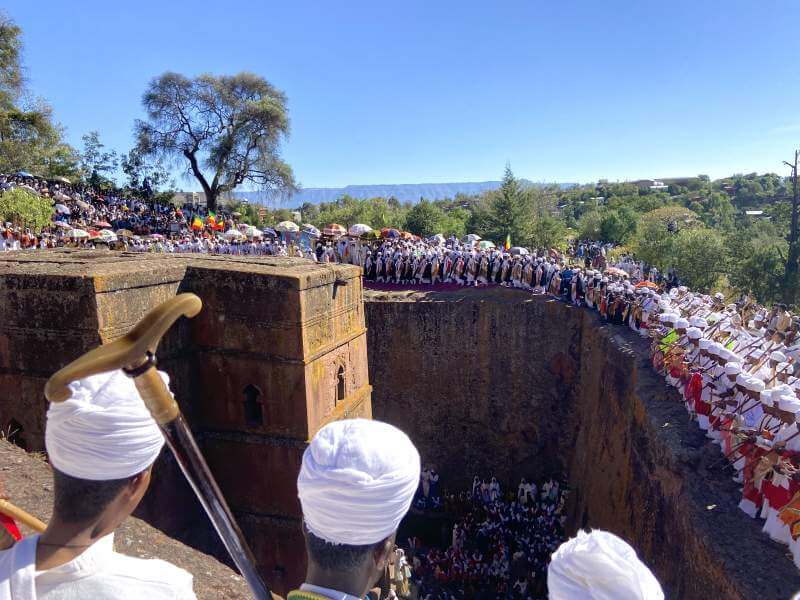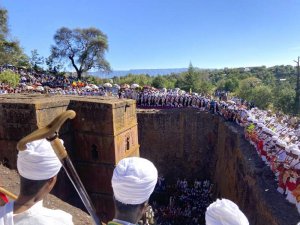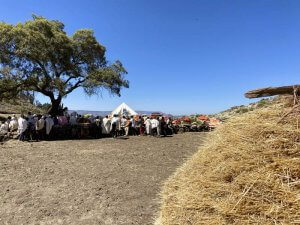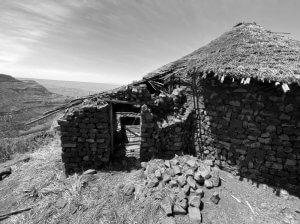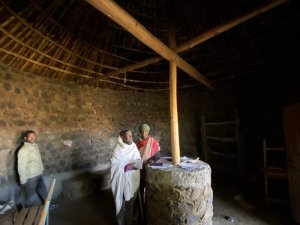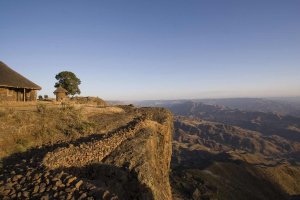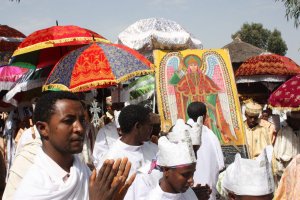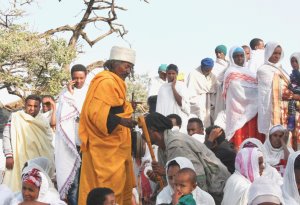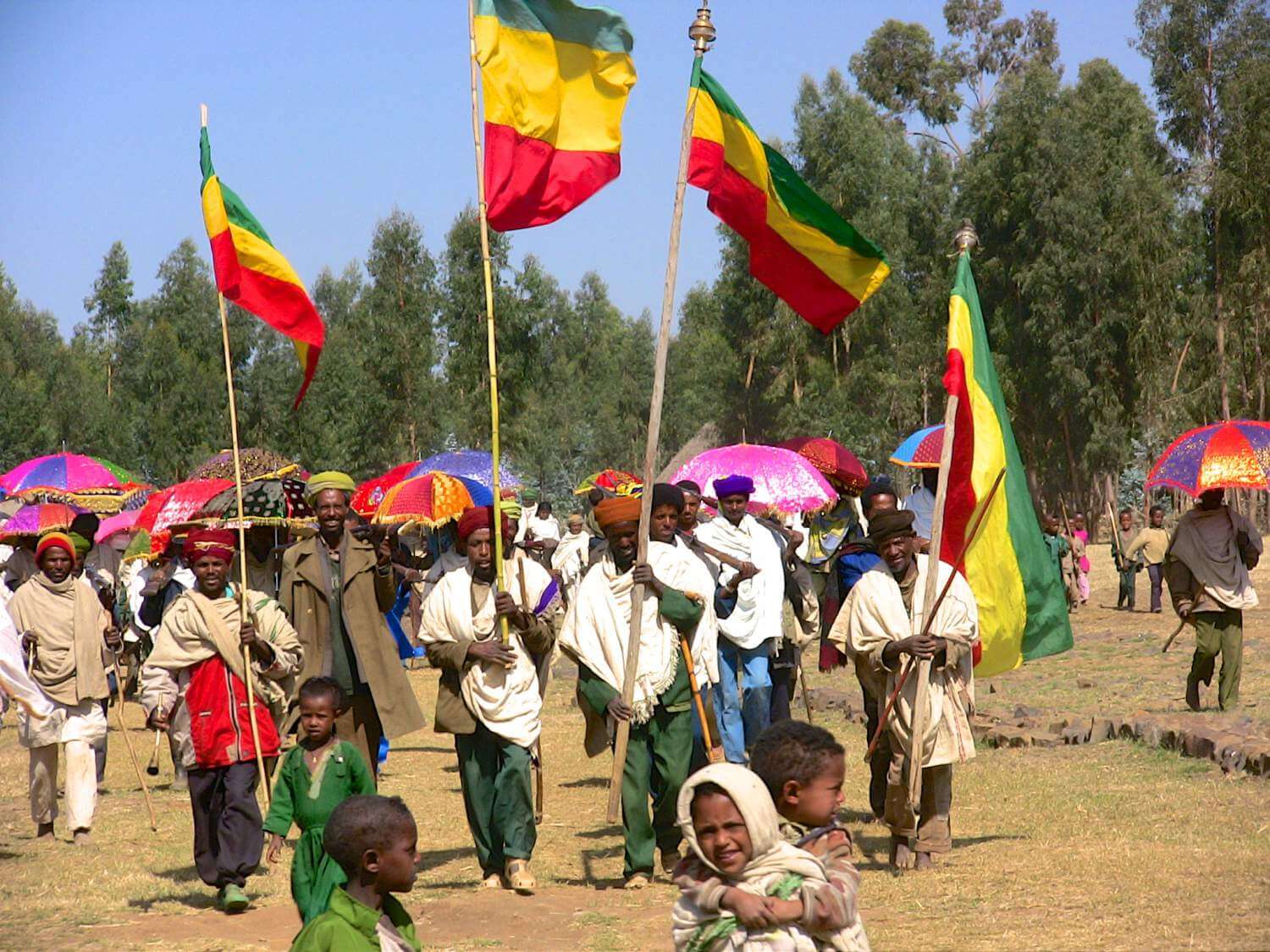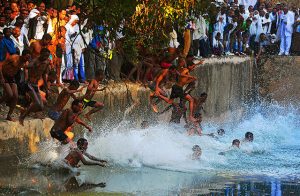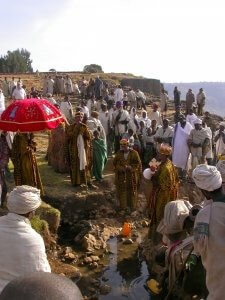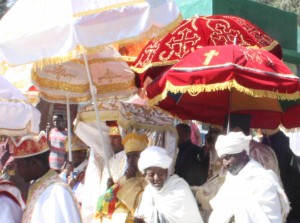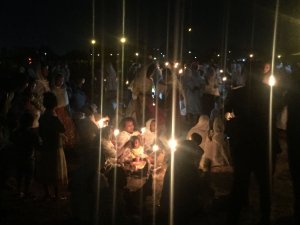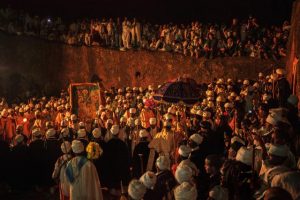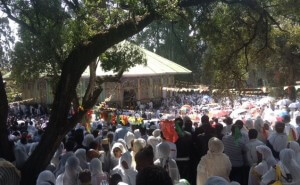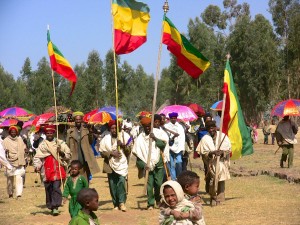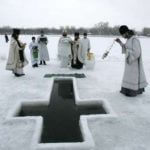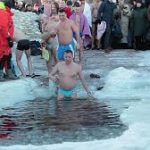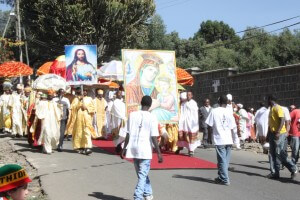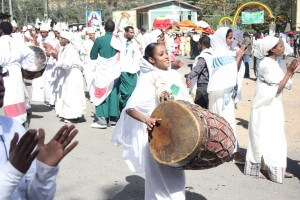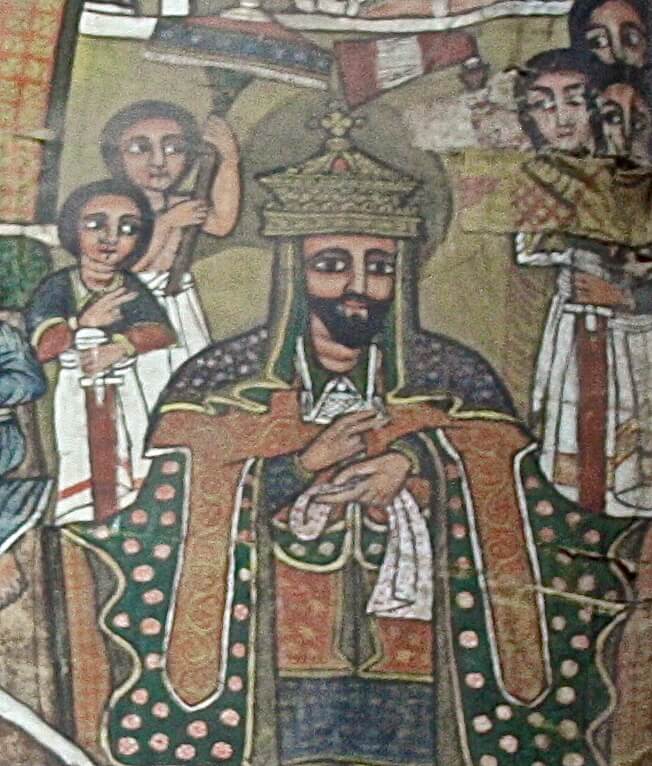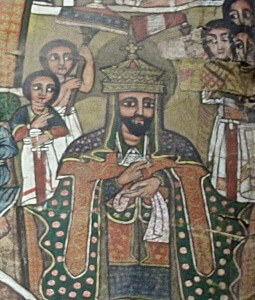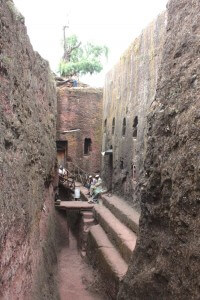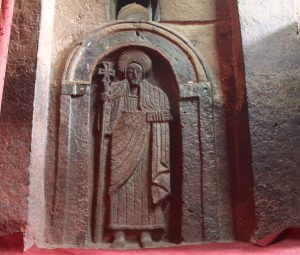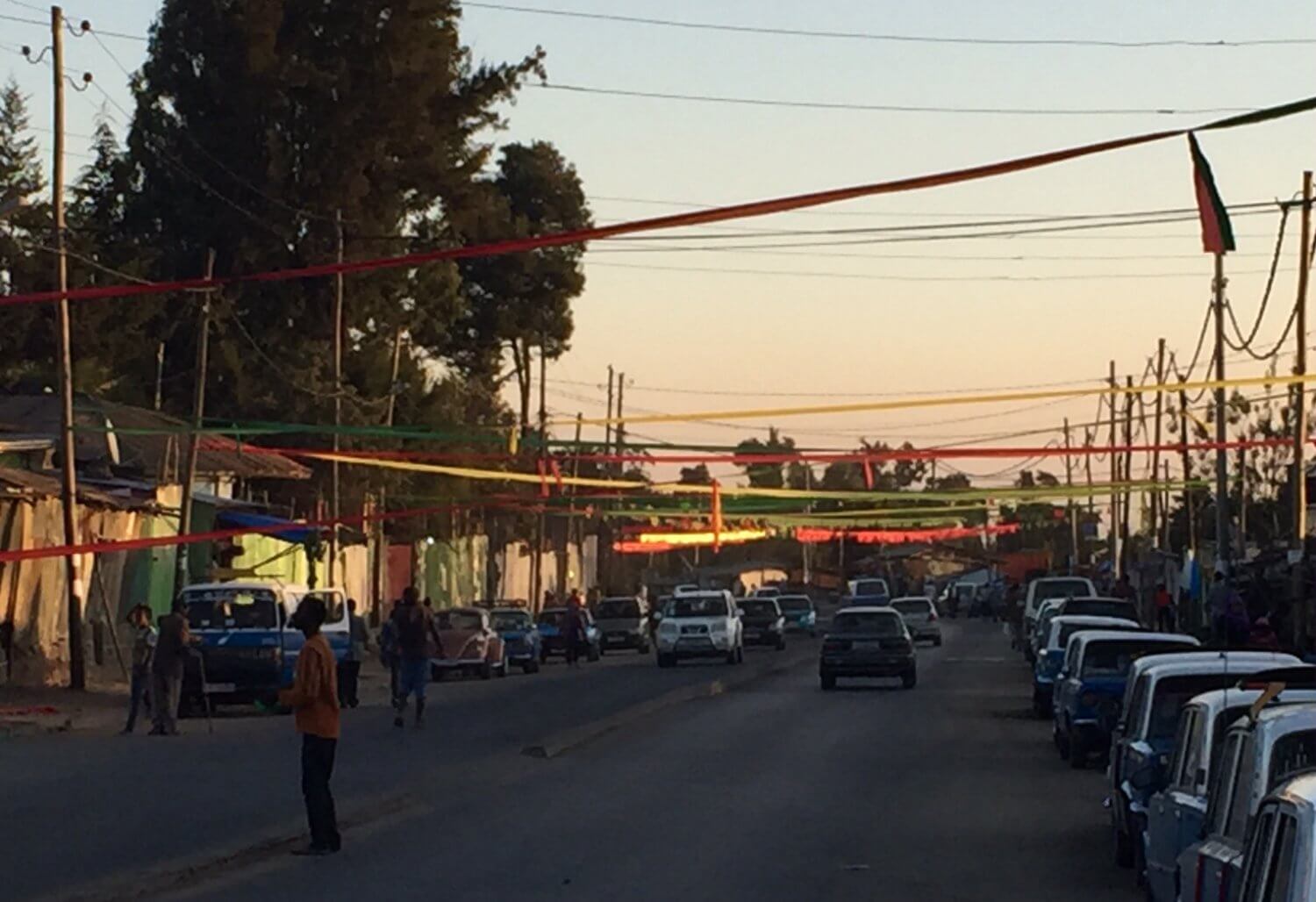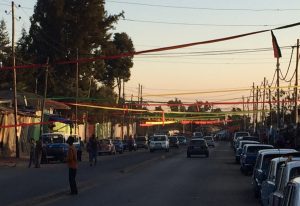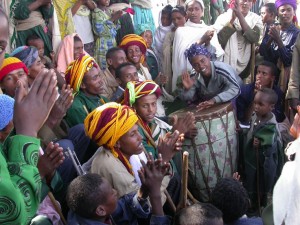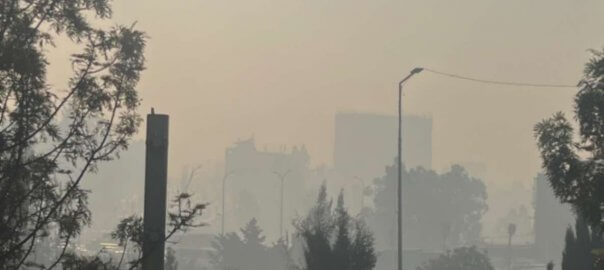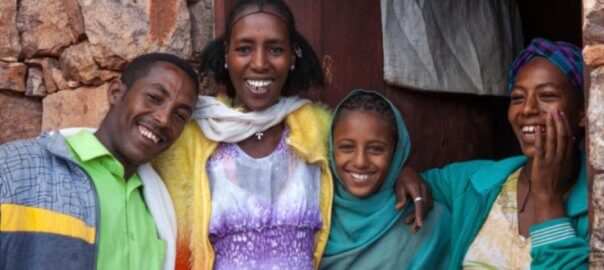As Ethiopia begins to open up after two years of restrictions on travel at first due to COVID 19 and then due to a spreading conflict, it maybe time to ponder what makes Ethiopia a unique travel destination and magical place to visit, and to start looking at the you can visit.
Ethiopia – a Biblical Land!
Ethiopia conjures up many images in the mind of the would be traveller. Images that come from characters from Ethiopia’s rich history of Emperors, of the Queen of Sheba and of the mysterious Prester John; also geographical images: of the River Nile, the Rift Valley, of high mountains and deep gorges and hot deserts; and this mixed in with images from the 70’s & 80’s of famines and wars. Added to these are more recent images, perhaps garnered from TV documentaries that show the unique wildlife of the Ethiopian highlands:
Gelada Baboons (or monkeys as scientists now like to call them) scrambling around on precipitous cliffs flashing their crimson gums and eye lids; and the Ethiopian wolf – the world’s rarest in the dog family, interacting with touching tenderness with their pack as they eke out their lives in the Afro-alpine moorlands.
Many have used the term ‘Biblical’ to describe what they see in Ethiopia, maybe inspired by the immense landscape, or the people often wrapped in cotton shawls (gabis), or by herds of cattle, camels, sheep and or goats roaming the open land. You certainly sense the huge and ancient human and physical landscape that both stretches away in front of you and goes back into the mists of time.
For me however it is more about how the Orthodox Christian highlands are so focused on the church, the saints days and holidays and the scriptures – all of which are referred to as the Bible. The Church calendar dictates the days you can plough, thresh and harvest, and the days you can’t. There are the days to gather round the church and members of the community compete to be the one responsible for providing the locally brewed beer. Weddings are set according to this calendar too. Churches are often built on top of cliffs,
surrounded by unspoiled forest giving you an idea of how wooded the landscape could have been a thousand years ago. Around the older established churches – monasteries – are clusters of huts where students learning the age old chants also learn the texts and debate their meaning. Some of these monasteries have older students who become specialists in the subjects taught at that location.
These same churches are home to ancient Bibles and religious scriptures, some far older than anything emanating from Europe. Scholars seek to study these texts to see some of the earliest Christian writings. Some, like the book of Enoch, are not found in the west and yet illuminate the early thinking of the church. Along with these ancient texts are beautiful processional crosses and other treasures that can take your breath away if you are fortunate enough to be shown them.
Visitors travelling through Ethiopia will generally only scratch the surface of this biblical land. But the experiences, visual as well as audible, will leave an indelible mark on them, often ensuring that these visitors return again to see more. Whether they see a church on an Amba (flat mountain top), or a Tabot processing through town or country side, or bands of
pilgrims heading to a special celebration, they will sense something very ‘other’ about Ethiopia. It is something that at once brings echos that resonate with the traveller’s generational past, a time when his/her forebears lives went in a rhythm with the church, and lived intimately with crops and livestock interwoven into their lives. A time before mechanisation and a time when life was lived as a community. In this way travelling in Ethiopia, particularly into the countryside, is also a travel through a time warp, giving a sense of what the modern world has lost in its rapid advances over the last few centuries. Something about this touches the soul of the traveler to Ethiopia and lights up a place inside that was hidden.
Each week now, more countries around the world are dropping all COVID related travel requirements. For travel to Ethiopia there is only a requirement for a negative PCR test taken within 5 days of arrival in Addis. For re-entry to most of the rest of the word there maybe a PCR test required, but only for unvaccinated travellers.
In addition the UK Government’s travel advice has moved to put much of the country in green (OK to travel). With the conflict having become much reduced and the Ethiopian parliament recently repealing the national State of Emergency, it is anticipated that places such as Gondar and Lalibela (which are now open for business) will move from Amber to Green listing in the coming weeks.
Ethiopia badly needs tourism to restart. Two years without income has bought most individuals that have relied on tourism for their livelihood local economy to their knees. Its not just guides and hotel workers, but all the others whose their sell goods and services to the tourism industry. Ethiopia so looks forward to welcoming visitors back in the coming months. Contact us at Tesfa Tours to make suggestions based upon your preferences

